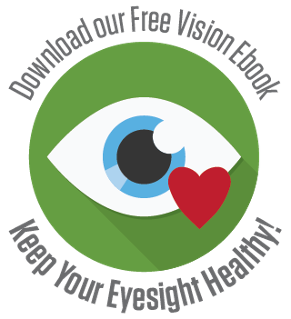By Tim Fitzgerald on Mar 16, 2020 @ 02:00 PM
The beauty of modern contacts is that they’re so seamless you forget they are there – but when your head hits the pillow after a long day and you realize your contacts are still in, it becomes a big “ugh.” That scenario tempts everyone who wears contacts to just roll over and go to sleep. But is it okay to sleep in your contacts? What happens to your eyes when you do?
The short answer is no, you should not sleep with your contacts if you wear regular, daily-wear lenses. But there’s an exception to that rule. Read on to learn about more about what you risk when you sleep with contacts in, and when it is okay to wear them to bed.
Risks of sleeping with standard or daily wear contacts in:
- Keratitis: Sleeping in your contact lenses (or just wearing them longer than recommended) increases your risk for keratitis. Keratitis is infectious or non-infectious inflammation of the cornea – the tissue of the front of your eye that covers your pupil. Symptoms of keratitis include:
- Difficulty opening your eyes
- Feeling like something is in your eye
- Excess tears or discharge
- Eye redness
- Decreased vision
- Eye pain
- Sensitivity to light
- Blurred vision
- Infection: When you wear your contacts to bed, you are reducing the amount of oxygen that your eyes get. Just like the rest of your body, your eyes need oxygen to stay healthy. When they don’t get enough oxygen, you are increasing your chances of infection. The vast majority of eye infections are bacterial, primarily from the staphylococcus aureus bacteria
- Dry/Scratched Eyes: It should be noted that wearing contacts does not directly cause dry eyes. But it can cause dry eye symptoms to worsen, especially if you over wear your contacts. Dry eye symptoms can include redness, discomfort, or itchiness of the eyes. Dry eyes aren’t fun, and having these symptoms in your sleep could lead to injury if you rub your eyes too aggressively. So take extra caution sleeping with contacts if you have dry eyes.
FDA Approved Extended Wear Lenses
- Even though there are some risks involved with sleeping with your contacts in – sometimes the temptation can be too much. If you can’t help but give in, you should make sure you wear Extended Wear Lenses. Extended wear lenses are the exception to the “don’t sleep in your contacts” rule. They can be rated for wear up to 7 days, or in some cases 30 days (these are called continuous wear lenses). These lenses are made with advanced lens materials such as silicone hydrogel that allow the contacts to pass more oxygen to your eyes, reducing the risk for irritation and infection. But extended wear and continuous wear lenses aren’t right for everyone – people sensitive to contacts may still experience irritation and discomfort after a few hours.
Sleeping in your contacts can be an unhealthy habit for your eyes – but if you can’t help but be a contacts sleeper, extended wear or continuous wear lenses could be a helpful alternative for you. No matter what kind of contacts you wear, make sure you only wear them per your optometrist’s instruction – and always remove them if you experience discomfort. And remember that your contact-wearing habits are only part of your vision health. If you are trying to make the most out of your eye health, check out our healthy vision e-book below!





comments